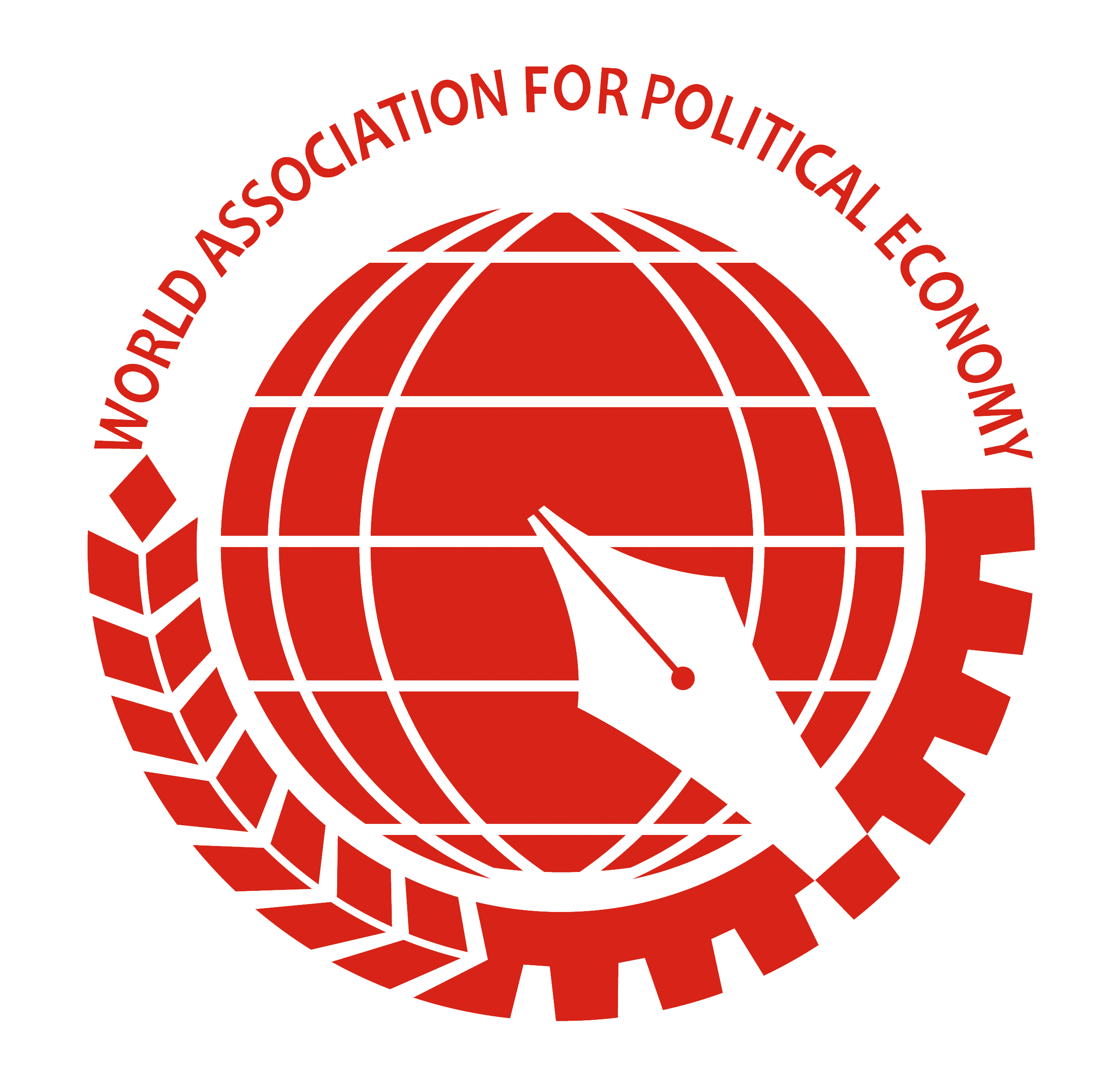The 8th WAPE Forum Statement 2013
A Statement
On Inequality and World Capitalism: Analysis, Policy and Action
Since the end of 2007, when the latest historic crisis of capitalism became the worst ever, countries from Latin America and Asia, especially China, are referred to as new actors of a changing world as an alternative to capitalism.
There are many kinds of inequalities such as inequalities between nations, gender inequalities, racial inequalities, income and wealth inequalities. This statement focuses on income and wealth inequalities because such inequalities are emerging as the most important ones in the current global crisis of capitalism..
This crisis has led to a decline in the levels of growth in the world, especially in Europe, with enormous social consequences. Greece, Spain, Portugal, France, among many other countries, live in an era of high unemployment rate. The poverty level in Europe is growing. The response of the dominant classes in these countries to these problems has been the imposition of austerity policies. These policies instead of reducing unemployment and improving the living standarda, have increased the reach of private capitalist activities.
We have observed very large inter-country differences in the level of household wealth. According to the study of James et al (2011), the USA is the richest country in aggregate terms, with wealth estimated at PPP (purchasing power parity) $201,319 per adult in the year 2000. At the opposite extreme among countries with wealth data, India has per adult wealth of $11,655 in PPP terms. Global wealth-holding is highly concentrated, much higher than in the case of income. The share of the top 10 per cent of adults in 2000 is estimated to be 71.2 percent and the Gini coefficient to be 0.804. The share of the bottom half is just 1.6 per cent (with 0.784 for Brazil, close to 0.801 of the USA). Measured wealth inequality is higher still if international comparisons are based on official exchange rates, which is appropriate if attention is focused on the rich and super rich: the share of the top decile rises to 85 per cent and the Gini coefficient becomes 0.893.
These statistics indicate that the world’s wealth distribution is considerably more unequal than its income distribution, for which Milanovic (2005) reports Gini coefficients of 0.642 and 0.795 on PPP and exchange rate bases, respectively, for his full 1998 sample. Estimated wealth concentration varies significantly across countries and is generally very high. Comparisons of wealth inequality often focus attention on the share of the top 1 per cent. That statistic is reported for 11 countries in the past 10 years or so. Estimated shares of the top 1 percent range from 10.4 per cent in Ireland to 34.8 per cent in Switzerland, with the USA towards the top end of this range at 32.7 percent (The sampling frame for the USA survey excludes the Forbes 400 richest families; adding them would raise the share of the top 1 per cent by about two percentage points). The share of the top 10 per cent, which is available for all 20 countries, ranges from 39.3 per cent in Japan to 76.4 per cent in Denmark.
The root of the global inequality lies in the capitalist system in both economic and political terms. It is widely recognized in popular movement—such as the “Occupy Wall Street” that has extended to about 80 other countries—that there exists an opposition between the 1% rich upper class and the 99% masses, and that the 1% plays a genocidal role in economic development. Joseph Stiglitz, while speaking on inventing the term 1% and why they’re bad for the economy (Time, June 11, 2012), noted that America is kidding itself when it calls itself the land of opportunity. US census data shows that the top 20% of American families took 50.2% of the total household income, while the poorest 20% only get 3.3%. In the 1980s before the Reagan Administration, the numbers were 44.1% and 4.2% respectively.
The existing forms of capitalism, in spite of maintaining an enormous capacity to adapt to adverse conditions, have no capability for sustainable compromise with the currently evolving human potentialities; they are oriented to taking them only as a basis for the unrestrained aspirations of the capital to increase its value. This is the way that leads to imposition of the interests of the imperialist States under the hegemony of the financial bourgeoisie. In other words: the imposition of the primacy of the economic stability of the financial bourgeoisie over the other priorities of the State, and, over the interests of the vast majority of its citizens.
In May this year, Marxists and other students of Marx interested in the Critique of Political Economy from many parts of the world got together at the Federal University of Santa Catarina (UFSC), Florianópolis, Brazil, to discuss “Inequalities and World Capitalism: Analysis, Policy and Action.” This is the Eighth Forum of the World Association for Political Economy (WAPE). Our aim is to analyze the conditions of the world development from the radical perspective through renewed study of the finished and unfinished writings of Marx and of the plural realities of our time.
From this point of view, the world-wide inequalities among regions, countries and social classes are intrinsic to the on-going mode of capitalist development. There exists a genuine need for all these inequalities to be overcome by the social and political construction of social and political alternatives based on alternative thoughts and analyses emerging from the path opened up by Marx, and, on the practical policy of transformation emerging from such analyses. To that end, the event in Florianópolis is an attempt to incorporate the experiences of the Latin-America social movements, which are contributing to social transformation of the political forces in the region.
An important dimension of the politico-economic situation in the region is the rise of governments with popular basis in many countries, such as Venezuela, Bolivia, Ecuador, Uruguay, Argentina and Brazil. The governments of these countries have been adopting important policies of social inclusion aimed at reduction of social inequalities. The support bases of these governments have been enlarged to include portions of the middle income groups and even of the entrepreneurial class which considers these social inclusion policies as a component for the opening up of new investment opportunities and, consequently, of interest for increase in the value of capital.
However, these governments and these policies present important limitations, since they are a result of social alliances which include political forces that support and aim only at the prevalent form of capitalist development. It is known that such development makes the societies more crises-prone, and governments less people-friendly, without creating any further scope for more profound social transformation.
So, we propose:
1. To deepen our studies about the negative aspects and evolving survival strategies of capitalism, so that it is possible to emphasize its fundamental non-viability as well as its tenacity as a decadent social order;
2. To extend our opportunities of political and scientific discussion and relation with the popular social movements, recognizing them as social forces capable of real transformation of society in the current historical circumstances;
3. To promote reform in individual countries that prioritize the reform of ownership structure to reflect a stronger state, collective, and cooperative economy, with attention specially paid to solve the problems of inequality and contradiction between the rich and the poor through measures related to enterprise ownership and distribution;
4. National governments around the world should set up policies that regulate income fluctuations, and link employee salary to productive efficiency, profit rate, increase in manager’s income, and rise of local living expenses;
5. To strive to strengthen the role of national governments in income redistribution, so as to keep raising the level of public welfare such as social security, education, housing, etc. of urban and rural residents;
6. International organizations and progressive scholars need to come up with global policies of unified taxation to respond to billionaires around the world (e.g., recently the French ones) who manage to avoid legal taxation within their own countries by emigration to other countries with lower taxes (e.g. Russia).
7. To continuously debate and interrogate our views on the socialist alternatives for the 21st Century with which we are able to overcome the problems brought up by capitalism. Socialism of 21st Century in Latin America deserves our support, for it constitutes a progressive notion and important action towards the elimination of inequalities.
8. Opposition to all forms of imperialism and to the wars which have been unleashed by it for assuring its reproduction as a global hegemonic order.
For that, we consider that it is essential to have the cooperation of the Marxists and of the other students of Marx from all over the world. WAPE is an important space for this objective, where the exchange of ideas, studies and propositions for actions emanating from Marx’s Critique of Political Economy are possible. There is no way of overcoming capitalism without a global political, economic, cultural and scientific action of the forces inspired by Marx.




